A sept is a division of a family, especially of a Scottish or Irish family. The term is used in both Scotland and Ireland, where it may be translated as sliocht, meaning "progeny" or "seed", which may indicate the descendants of a person. The word may derive from the Latin saeptum, meaning "enclosure" or "fold", or via an alteration of "sect".

Akins is a Scottish surname and northern Irish family name.
Quayle is a surname of Anglo-Celtic origin, specifically English, Irish, Manx and Scottish.
Davis is a surname of English and Welsh origin. As an English surname it may be a corruption of Davy or a reference to King David in the Old Testament. As a Welsh surname may be a corruption of Dyfed, related to Irish colonists who occupied an area of southwest Wales in the late third century and established a dynasty there which lasted five centuries. Dyfed is recorded as a surname as late as the twelfth century, e.g. Gwynfard Dyfed, born 1175. Dafydd appears as a given name in the thirteenth century, e.g. Dafydd ap Gruffydd (1238–1283), Prince of Wales, and Dafydd ab Edmwnd, a Welsh poet. Alternatively, Davis may be a patronymic surname.

There have been six baronetcies created for persons with the surname Smyth, two in the Baronetage of England, one in the Baronetage of Great Britain, one in the Baronetage of Ireland and two in the Baronetage of the United Kingdom. One creation is extant as of 2010.
There has been one creation of baronet with the surname Smythe. It was created in the Baronetage of England for Edward Smythe on 23 February 1661.
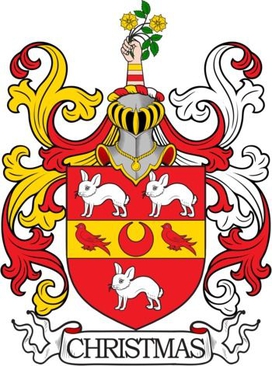
Christmas is an uncommon English-language surname. The origin is uncertain; some genealogy books state that it was given to people born near Christmas, while this is disputed by researchers, and DNA tests performed on men with the surname show that the majority of those descend from a common ancestor. Others suggest it was given to people who organised Christmas festivities, or has a Norman origin. Most prominent in Southern England, various notable people from around the world have had the surname, and it has been given to a number of fictional characters. The William Faulkner character Joe Christmas, from Light in August, has a much-discussed name. The blood disorder Christmas disease or haemophilia B was first described in a boy with the surname and is observed in other people of the name.

The surnames McCabe and MacCabe are Irish and Scottish surnames. McCabes are considered to have moved from the Western Isles of Scotland to Ireland sometime around 1350. McCabes are now found mostly in the United States, Ireland and the United Kingdom, Australia, South Africa, and New Zealand.
Spencer is a surname, representing the court title dispenser, or steward. An early example is Robert d'Abbetot, who is listed as Robert le Dispenser, a tenant-in-chief of several counties, in the Domesday Book of 1086. In early times, the surname was usually written as le Despenser, Dispenser or Despencer—notably in works such as the Domesday Book and the Scottish Ragman Rolls of 1291 and 1296, but gradually lost both the "le" article and the unstressed first syllable of the longer surname to become Spencer.
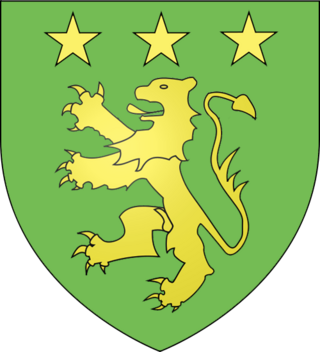
Moore is a common English-language surname. It was the 19th most common surname in Ireland in 1901 with 15,417 members. It is the 34th most common surname in Australia, 32nd most common in England, and was the 16th most common surname in the United States in 2000.
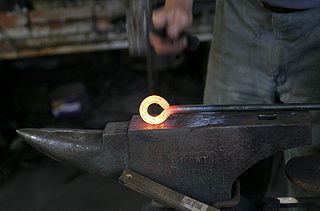
Smyth is an early variant of the common surname Smith commonly found in Ireland. Shown below are notable people who share the surname "Smyth".
Jones is a surname of Welsh and English origin meaning "son of John". The surname is common in Wales. It evolved from variations of traditionally Welsh names: Ieuan, Iowan, Ioan, Iwan, or even Siôn. The sound generated from ‘Si-’ in Siôn is a Welsh approximation of the English ‘J’ sound that does not exist natively to the language, equivalent to the English ‘Sh’ such as in “shed.”
Ferrer is a common surname in Catalan, ranked 35th in Catalonia and was listed as 1,648th most common surname in the world.
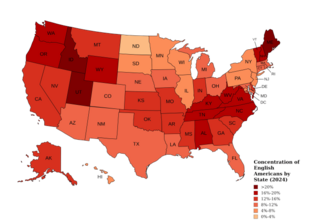
English Americans are Americans whose ancestry originates wholly or partly in England. In the 2020 United States census, English Americans were the largest group in the United States with 46.5 million Americans self-identifying as having some English origins representing (19.8%) of the White American population. This includes 25,536,410 (12.5%) who were "English alone". Despite them being the largest self-identified ancestral origin in the United States, demographers still regard the number of English Americans as an undercount. As most English Americans are the descendants of settlers who first arrived during the colonial period which began over 400 years ago, many Americans are either unaware of this heritage or choose to elect a more recent known ancestral group even if English is their primary ancestry.
'Kadiyala' is the surname of those belonging to the Kamma caste. People belonging to the Kadiyala group are mostly from East Godavari district, West Godavari district, Chittoor district, the areas of Mustabad, Katuru, and Gudivada in the Krishna district and Guntur district of Andhra Pradesh.
Fay is an Irish surname that also arose independently in France. There are different theories about the origin and meaning of the surname.
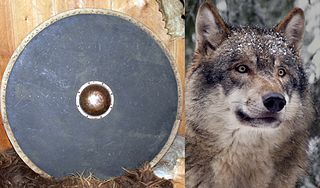
Randall is a masculine given name in English, Irish and German. Its modern use as a given name originates from the transferred use of the English–language surname Randall, which in turn is derived from Randolph.
The anglicisation of personal names is the change of non-English-language personal names to spellings nearer English sounds, or substitution of equivalent or similar English personal names in the place of non-English personal names.

Winder is a surname originating from England seen primarily in the United Kingdom and the English-speaking nations, but also in some places in mainland Europe, particularly Austria.
Ó hÁdhmaill is a Gaelic Irish clan from Ulster. The name is now rendered in many forms, most commonly Hamill. The clan are a branch of Cenél nEógain, belonging to the Uí Néill; they claim descent from Eochu Binneach, the son of Eógan mac Néill. Their descendants in Ireland are found predominantly across Ulster, and County Louth, Leinster.











